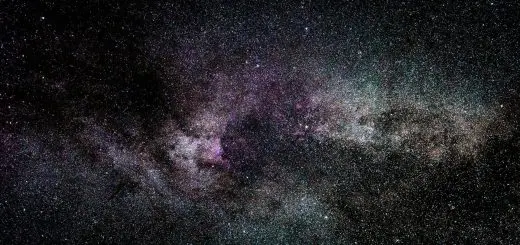Epona: Celtic Goddess of Horses and Fertility

Looking for more amazing products? Check out our online store and explore our collection here! Happy shopping!
Before diving in, please note: This post is for informational purposes only. If you’d like to know more about how we approach topics, feel free to check out our friendly Disclaimer Page.
Hey there, amazing readers! 
We’re committed to delivering quality posts, and your support (even just sticking around despite the ads) means everything to us. So, bear with us, and thanks for helping us keep the good vibes rolling. Now, on to the fun stuff!
TRANSLATE BUTTON AT THE END OF THE ARTICLE
Overview: Epona: Celtic Goddess of Horses and Fertility
Epona is a Celtic goddess who is closely associated with horses, fertility, and abundance.
She holds a significant place in Celtic mythology and played an essential role in the lives of the ancient Celts.
This article explores the origins and mythological background of Epona, her worship and importance in Celtic culture, her depiction and symbolism, associated attributes and powers, sacred sites and offerings dedicated to her, her role in Celtic rituals and festivals, her influence on equestrian culture, her presence in art and literature, comparisons to other goddesses in different cultures, and her enduring legacy and modern reverence.
Origins and Mythological Background
Epona’s origins can be traced back to the ancient Celts, a group of people who inhabited various regions of Europe during the Iron Age.
The name Epona is derived from the Gaulish language, which was spoken by the Celtic people in what is now modern-day France.
While her exact origins remain uncertain, Epona was widely worshipped throughout the Celtic world, including Gaul, Spain, and Britain.
In Celtic mythology, Epona is often associated with fertility, prosperity, and the cycle of life.
She is depicted as a divine horse goddess, believed to have the power to grant abundance and protect horses and their riders.
Epona is also considered a guardian of the underworld and a guide for the souls of the dead.
Worship and Importance in Celtic Culture
Epona held great importance in Celtic culture, particularly among the Gauls.
She was revered as a deity who brought prosperity and abundance to the people.
Epona was often invoked for blessings on agriculture and livestock, as well as for protection during travel and warfare.
The Celtic people believed that by honoring Epona, they could ensure the well-being of their horses and increase fertility in their communities.
Temples dedicated to Epona have been discovered throughout Gaul, indicating the widespread worship of this goddess.
These temples often included statues or reliefs depicting Epona with horses, emphasizing her connection to the equine world and her role as a protector and guide.
Depiction and Symbolism of Epona
Epona is typically depicted as a young woman riding a horse or standing alongside one.
She is often shown wearing a long dress or robe, holding a cornucopia symbolizing abundance or a key symbolizing her role as a guide to the afterlife.
In some representations, Epona is accompanied by animals such as dogs or birds, further emphasizing her connection to the natural world.
The horse, in particular, is a prominent symbol associated with Epona.
It is believed that horses held great significance in Celtic society, representing power, strength, and fertility.
Epona’s association with horses further solidifies her role as a goddess of fertility and abundance.
Associated Attributes and Powers
Epona is associated with various attributes and powers.
As a goddess of fertility, she was believed to have the ability to bestow blessings on agriculture and ensure the growth of crops.
Epona was also seen as a protector of horses and their riders, granting them safety and good fortune during their journeys.
Additionally, Epona was perceived as a guide for the souls of the dead, leading them to the afterlife.
She possessed the power to navigate the realms of both the living and the dead, making her a pivotal figure in Celtic beliefs surrounding death and the afterlife.
Sacred Sites and Offerings
The worship of Epona often took place at sacred sites dedicated to her.
These sites varied from simple shrines to elaborate temples, depending on the region and the resources available.
People would visit these sites to offer prayers, make sacrifices, and seek the blessings and protection of the goddess.
Offerings made to Epona typically included fruits, vegetables, grains, and flowers, symbolizing fertility and abundance.
Horses were also considered sacred to Epona, and offerings of horse-related items such as bridles, horseshoes, or images of horses were commonly given to honor her.
Epona’s Role in Celtic Rituals and Festivals
Epona played a significant role in Celtic rituals and festivals.
During agricultural festivals, the Celts would offer prayers and make sacrifices to Epona, seeking her blessings for a bountiful harvest.
These rituals often involved the participation of horses, as they were believed to be sacred to the goddess.
In addition to agricultural festivals, Epona was also honored during equinoxes and solstices when the Celts celebrated the changing seasons and the cycles of life.
These celebrations involved feasting, music, dancing, and various rituals dedicated to Epona and other deities.
Influence on Equestrian Culture
Epona’s influence extended beyond just religious worship and rituals.
She played a significant role in Celtic equestrian culture, as horses held great importance in the daily lives of the Celts.
They were not only used for transportation but also served as symbols of power, status, and wealth.
The Celts believed that Epona’s divine protection extended to horses and their riders.
This belief fostered a deep reverence for horses and a unique bond between humans and these magnificent creatures.
Epona’s influence can still be seen today in the equestrian traditions and practices that have been carried on from ancient Celtic times.
Epona’s Presence in Art and Literature
Epona’s influence can be seen in various forms of Celtic art and literature.
Her depictions can be found in sculptures, reliefs, and other artistic representations throughout the Celtic world.
These artworks often showcase her riding a horse or accompanied by animals, emphasizing her connection to nature and the animal kingdom.
In Celtic literature, Epona is mentioned in various mythological texts and poems.
These writings provide further insights into her role as a goddess of fertility, abundance, and the afterlife.
Epona’s presence in art and literature highlights her enduring popularity and the significance she held in Celtic society.
Comparisons to Other Goddesses in Different Cultures
Epona’s role as a horse goddess and her association with fertility and abundance draws comparisons to similar deities in other cultures.
In Roman mythology, there is a goddess named Epona who shares many characteristics with the Celtic version.
Both goddesses are associated with horses, fertility, and protection.
This suggests that there may have been cultural exchanges and influences between the Celtic and Roman civilizations.
Furthermore, in Norse mythology, the goddess Freyja is often associated with horses and fertility.
Like Epona, Freyja is depicted as a powerful and benevolent deity who grants abundance and protection to her worshippers.
These similarities illustrate the universal themes and archetypes present in different mythologies.
Epona’s Legacy and Modern Reverence
Although the worship of Epona declined with the decline of Celtic civilization, her legacy and influence still endure today.
Epona’s association with horses and fertility continues to resonate with equestrian enthusiasts and those who appreciate the natural world.
Her qualities of abundance, protection, and guidance continue to inspire individuals seeking prosperity and connection with the spiritual realm.
In some modern pagan and neo-pagan traditions, Epona is still honored as a goddess of fertility and the equine world.
Her symbols and imagery are incorporated into rituals and practices, allowing her presence to be felt in contemporary spiritual practices.
Conclusion: Epona’s Enduring Influence
Epona, the Celtic goddess of horses and fertility, holds a significant place in Celtic mythology and culture.
Her association with abundance, protection, and the afterlife made her a revered deity among the ancient Celts.
Epona’s influence extended beyond religious worship and rituals, impacting equestrian culture and leaving a lasting legacy.
Through her depiction in art and literature, Epona’s image has been preserved, showcasing her connection to the natural world and the animal kingdom.
Comparisons to other goddesses in different cultures highlight the universal themes and archetypes present in human mythology.
While the worship of Epona may have declined with the decline of the Celtic civilization, her enduring influence can still be seen today.
In modern spiritual practices, Epona continues to be revered as a goddess of fertility, abundance, and guidance.
Her qualities and symbols resonate with individuals seeking a deeper connection with the natural world and a sense of prosperity.
Epona’s enduring legacy serves as a testament to the lasting impact of ancient Celtic beliefs and the goddess who personified them.

The Enlightenment Journey is a remarkable collection of writings authored by a distinguished group of experts in the fields of spirituality, new age, and esoteric knowledge.
This anthology features a diverse assembly of well-experienced authors who bring their profound insights and credible perspectives to the forefront.
Each contributor possesses a wealth of knowledge and wisdom, making them authorities in their respective domains.
Together, they offer readers a transformative journey into the realms of spiritual growth, self-discovery, and esoteric enlightenment.
The Enlightenment Journey is a testament to the collective expertise of these luminaries, providing readers with a rich tapestry of ideas and information to illuminate their spiritual path.
Our Diverse Expertise
While our primary focus is on spirituality and esotericism, we are equally passionate about exploring a wide range of other topics and niches 

To ensure we provide the most accurate and valuable insights, we collaborate with trusted experts in their respective domains 
Our blog originally focused on spirituality and metaphysics, but we’ve since expanded to cover a wide range of niches. Don’t worry—we continue to publish a lot of articles on spirituality! Frequently visit our blog to explore our diverse content and stay tuned for more insightful reads.
Hey there, amazing reader! 
Check out our store here and take a peek at some of our featured products below! Thanks for being awesome!













